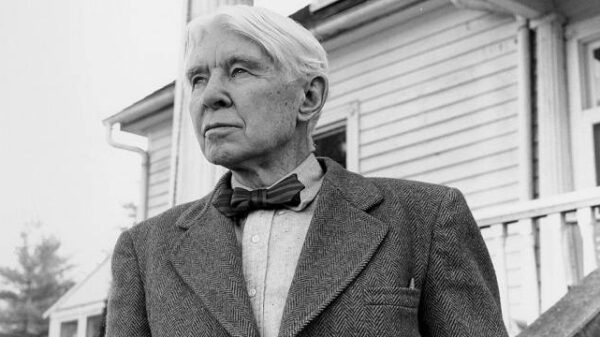Shall I compare thee to a summer’s day?
Thou art more lovely and more temperate:
Rough winds do shake the darling buds of May,
And summer’s lease hath all too short a date:
Sometime too hot the eye of heaven shines,
And often is his gold complexion dimm’d;
And every fair from fair sometime declines,
By chance, or nature’s changing course, untrimm’d;
But thy eternal summer shall not fade
Nor lose possession of that fair thou ow’st;
Nor shall Death brag thou wander’st in his shade,
When in eternal lines to time thou grow’st;
So long as men can breathe or eyes can see,
So long lives this, and this gives life to thee.
Analysis of Shall I Compare Thee To A Summer’s Day
In Shall I Compare Thee To A Summer’s Day , the narrator informs someone he highly esteems that this individual is nicer than a summer’s day because a summer’s day is mostly too hot and too windy, and particularly because a summer’s day doesn’t also last; it must vanish away just as people, plants, and animals disappear or die.
But, this admirable person does not lose elegance or dasappear just like a summer’s day because he/she is permanently preserved in the narrator’s own poetry. “So long lives this, and this gives life to thee” means “This poetry lives long, and this poetry gives life to you.”
From a contemporary viewpoint Shall I Compare Thee To A Summer’s Day might come off to express pompousity (applauding the greatness of one’s own powery or handiwork), incidental (criticizing a summer’s day upon what seems a whim), and sycophantic (praising someone without substantial evidence).
How then could this probably be number one? After the bad taste of an old flavor to a new tongue wears off, we understand that this is the very best of poetry. This is not pretentious because Shakespeare, the writer of this poem actually accomplishes greatness and builds an eternal poem for the world.
It is actually fine to recognize poetry as great if it is great and it is fine to discern an artistic structure. In fact, it is absolutely super necessary in educating, shepherding, and leading others. The assault on a ‘summer’s day’ is not immoral. Woven throughout the language is an implicit connection between human beings, the natural world (“a summer’s day”), and heaven (the sun is “the eye of heaven”).
A comparison of a human being to a summer’s day instantly unlocks the mind to unconventional likelihoods; to spiritual perspectives; to the ethereal realm of poetry and elegance. The unabashed praise for someone without a hint as to even the gender or accomplishments of the person is not unreasonable or sycophantic.
It is a pure and simple way of reaching our relationships with other people, assuming the best. It is a pleased way to live—immediately free from the depression, stress, and cynicism that creeps into our hearts. This poem is strikingly and refreshingly courageous, profound, and uplifting.
Eventually, as to the question of overcoming demise, flear, anxiety and the deterioration of time, an overarching question in these great poems, William Shakespeare adroitly replies them all by missing the question, implying it is of no effect. He brandishes such sublime power that he is unmoved and can instead offer treatment, his verse, at will to those he sees befitting.
OtherAnalysis
Summary, Structure & Commentary of ‘Crossing The Bar’ a Poem By Alfred, Lord Tennyson
Summary Analysis of Ulysses a Poem By Alfred, Lord Tennyson
Summary Analysis Of Morte d’Arthur a Poem By Alfred, Lord Tennyson
Summary Analysis Of Break, Break Break a Poem By Alfred, Lord Tennyson
Summary Analysis Of Tithonus a Poem By Alfred, Lord Tennyson
Poet Nazir is a writer and an editor here on ThePoetsHub. Outside this space, he works as a poet, screenwriter, author, relationship adviser and a reader. He is also the founder & lead director of PNSP Studios, a film production firm.










